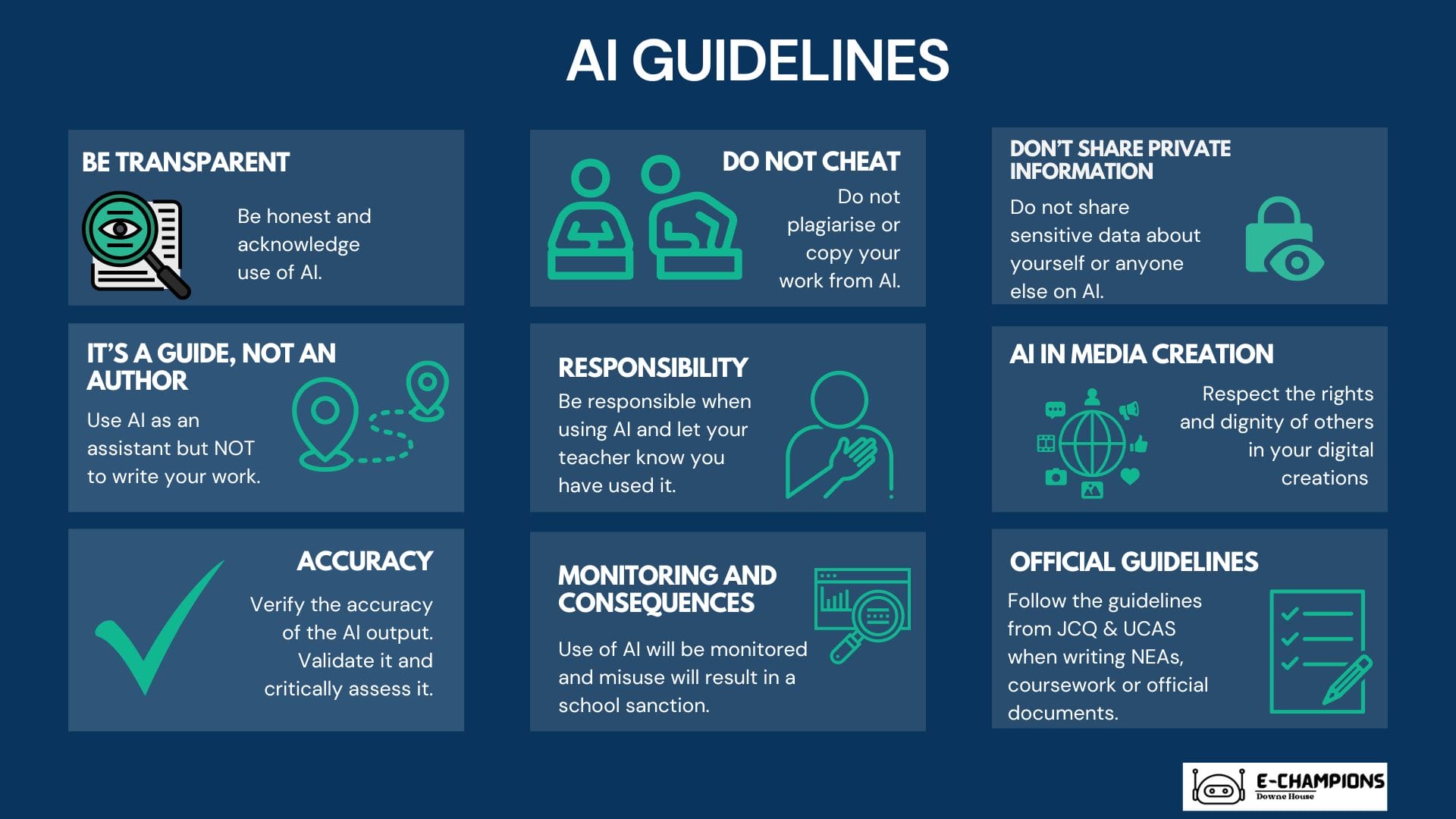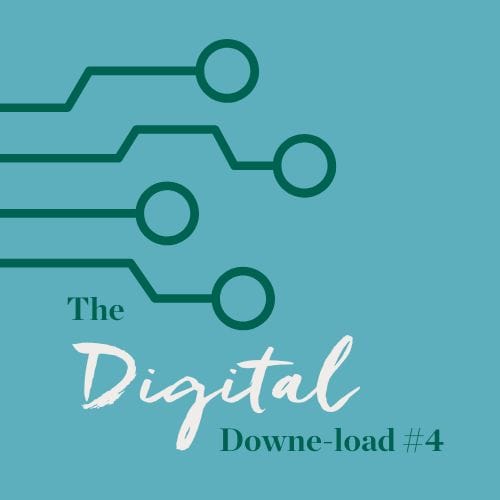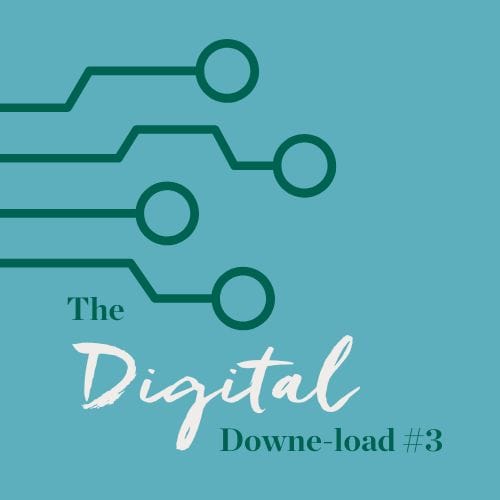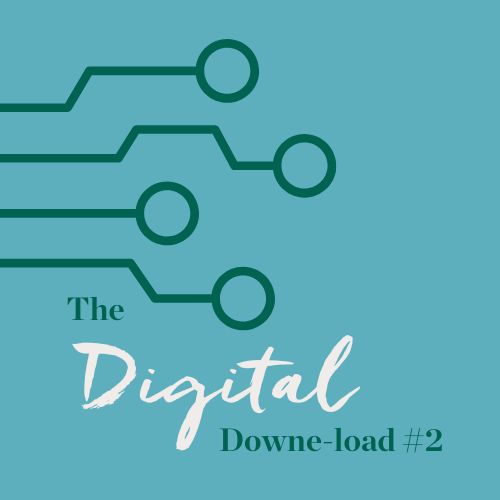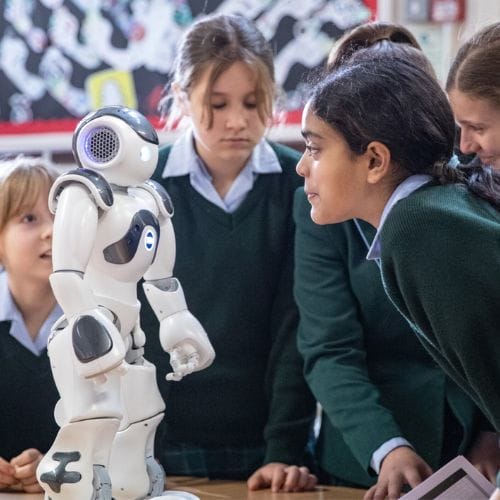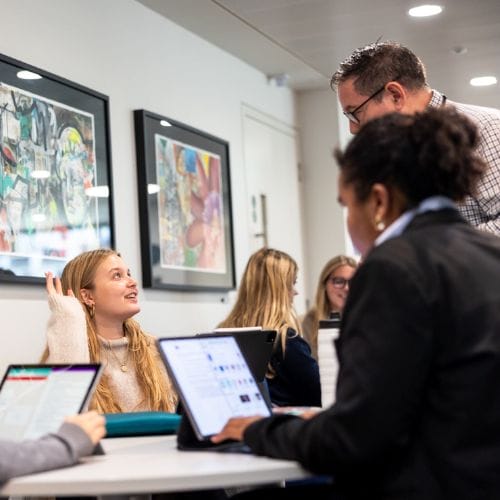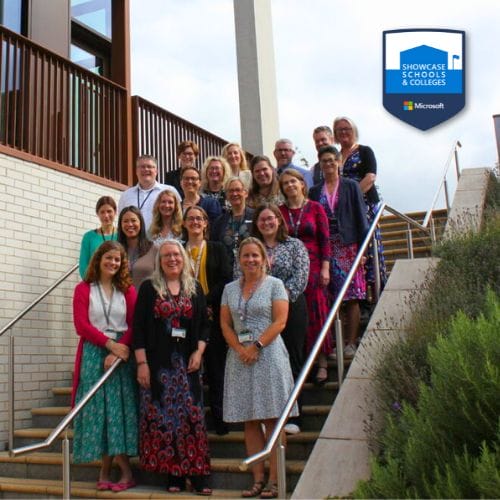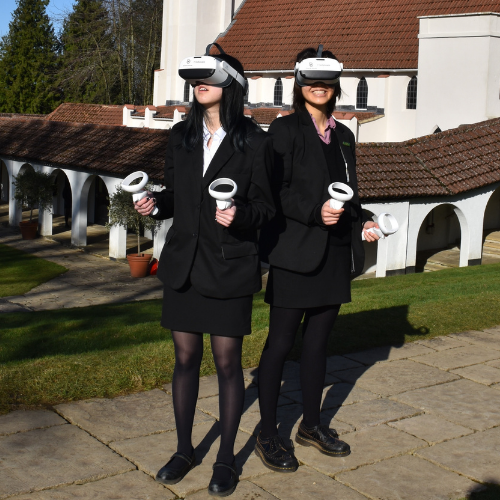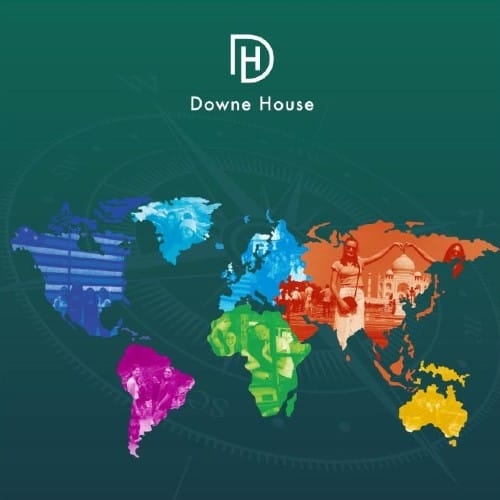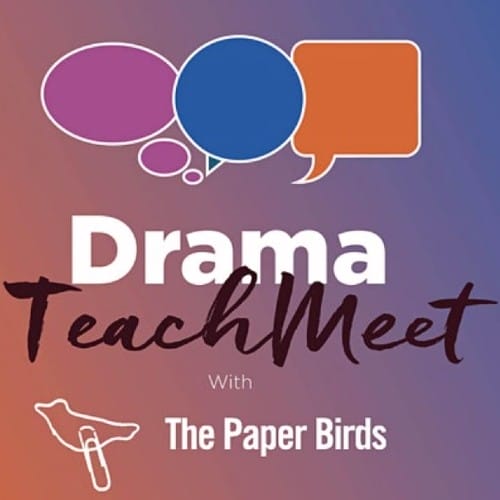
In the third edition of The Digital Downe-load, Mrs Basnett (Director of Digital Learning) discusses AI from a teacher’s perspective.
At Downe House, we are at the forefront of integrating Artificial Intelligence (AI) into our teaching practice and pupil curriculum. Tools like Century Tech, Up Learn and Quizizz amongst many others have already demonstrated AI’s capacity to personalise learning, offering immediate feedback and saving teachers precious time in lesson preparation. However, successful integration of AI requires comprehensive training for our teachers, and we have been focusing our efforts on this.
While it may sound trite, this integration of AI into our planning, administrative tasks and lessons themselves truly is a journey filled with both opportunities and obstacles. The challenge is two-fold: not only must we understand AI’s technical capabilities, but we must also navigate its ethical landscape. As well as discussing AI’s ethical issues we have focused our attention on AI’s other well-known limitation: hallucinations, that is, it can produce output that is nonsensical and altogether inaccurate. Understanding this particular drawback means that we are keeping the focus very much on the important business of teaching, building knowledge in our pupils so that they can judge AI, think critically and continue to question where necessary. The hallucination lesson is an important one and must not be overlooked. We are keen to demonstrate this to the pupils.
Our AI journey demands that we adopt a mindset of continuous learning and openness to change, along with an understanding that the boundaries are continuously shifting. Our CPD aims to build confidence in using AI, emphasising hands-on experience, discussion and collaboration. Success in this can be measured by the way in which colleagues are now using tools such as ChatGPT (a Large Language Model) as a starting point for a lesson plan or for some resources. For instance, teachers have leveraged these LMs to generate a model essay, enabling them to save considerable time in preparation and have allowed them to engage in interesting discussions with their classes about the use of AI. Naturally, teachers are leading the way in demonstrating how to cite the provenance of the model essay. We are harnessing AI not just as a tool for efficiency but as a catalyst for discussion about ethical use.
Nonetheless, despite our early successes, we continue to proceed with a certain amount of caution because integration of AI into teaching and learning should be thoughtful, ensuring it complements rather than dominates the educational experience. Our focus remains on fostering critical thinking, creativity, and other indispensable skills. AI, while powerful, is but one of many tools at our disposal. Naturally, part of our reticence stems from the well-known issues relating to AI. We know that we need to teach pupils to use AI responsibly. We must ensure they consider AI output, understand the ethical dimensions of AI use, including issues of bias and privacy and this is why we have involved our pupils in discussions around AI’s limitations and potential. The pupil AI team, drawn from the school’s E-Champions and Digital Ambassadors, have been involved in creating our guidelines (Figure 1) which broach the significant AI issues. This team have played a key role in disseminating these guidelines to the wider school community.
We recognise AI’s capacity to act as a ‘guide on the side’, serving as a personal tutor that enhances understanding and access to learning. This allows teachers to concentrate more on pupils’ holistic development, fostering a learning environment where every pupil can thrive. However, in this case, when pupils are using AI on their own, the rules and regulations that we have shared with them become doubly important because we must ensure they remain wary, questioning and critical thinkers. These are skills which are integral to the girls’ education and will continue to be emphasised.
As we continue to explore AI’s role in education, our journey is one of both discovery and caution. By embracing AI thoughtfully, we can enhance learning while preparing our pupils for their future, ensuring they are equipped not only with knowledge but with the skills to navigate an increasingly AI-driven world. Our commitment to responsibly integrating technology into our curriculum will empower our pupils to be not only consumers of AI but also as informed and critical contributors in a digital age.
Click here to discover more about Digital Excellence at Downe House.
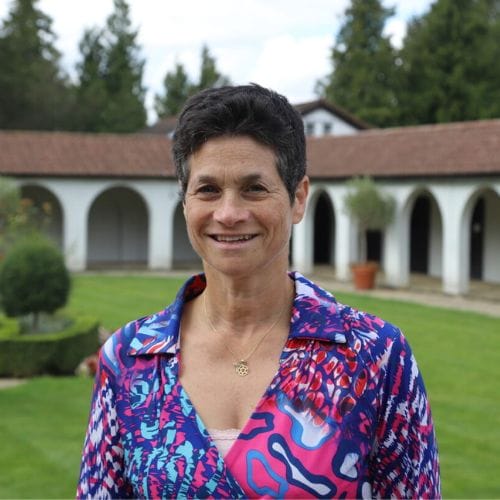
Mrs Jane Basnett
Director of Digital Learning, Teacher of French
Mrs Basnett trained at Goldsmiths and after over 25 years of teaching she is still learning new things and loves being in the classroom. She started at Downe House in 2008 as Head of Modern Foreign Languages and since then technology has become increasingly important in education. Mrs Basnett’s role of Director of Digital Learning allows her to share her expertise in the area of educational technology with the Downe House community.
